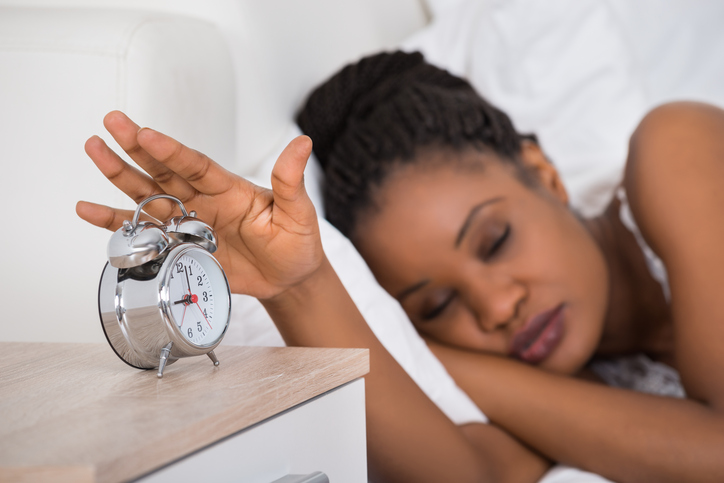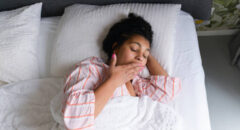 Despite a rise in many sleep disorders, a good portion of the African American community continues to go undiagnosed, even when the severity may affect their livelihood, per new research presented at the ATS 2017 International Conference.
Despite a rise in many sleep disorders, a good portion of the African American community continues to go undiagnosed, even when the severity may affect their livelihood, per new research presented at the ATS 2017 International Conference.
“African Americans experience a disproportionate burden of numerous health problems, including obesity, diabetes, hypertension, and cardiovascular disease, all of which have been shown to be associated with sleep,” lead study author Dayna A. Johnson, PhD, MPH, MS, MSW, a postdoctoral research fellow at Brigham and Women’s Hospital and Harvard Medical School, said in a statement.
“It seems plausible that sleep apnea and insomnia are important risk factors contributing to these health disparities.”
Sleep apnea is defined as a chronic health problem which affects breathing during sleep. It affects an estimated 18 million Americans and can worsen over time, if left untreated.
Insomnia, on the other hand, is the inability to sleep. Short-term insomnia (which lasts less than three months) plagues 15 to 20 percent of people in the U.S., per the National Sleep Foundation.
Still, “There is a disturbingly high prevalence of undiagnosed sleep disorders in our study population of African Americans,” Dr. Johnson added. “It is important to investigate the reasons for this high prevalence as well as investigate interventions targeted at increasing awareness and screening for sleep disorders.”
The dangers are eye-opening, at best. The Sleep Disorders Guide states that...
...sleep apnea sufferers are six times more likely to die in a car accident – due to sleepiness. Nearly half of all hospital patients with hypertension are also afflicted with sleep apnea. Conversely, roughly half of all sleep apnea sufferers face a diagnosis of high blood pressure. The National Commission on Sleep Disorders Research also reports that approximately 38,000 deaths occur annually that relate to cardiovascular problems, that in one way or another have been linked to sleep apnea.
According to Dr. Johnson’s findings, three of every four participants had sleep apnea: 38.4 percent had mild sleep apnea; 21.3 percent had moderate sleep apnea; and 15.8 percent had severe sleep apnea. Higher body mass index, hypertension, diabetes, being male, and being older were all associated with sleep apnea and its severity.
Shockingly, of the more than 2 in 10 participants sufferers (from insomnia), only 6.7 percent of them reported that a a physician had diagnosed their condition, the study indicates.
Previous research, conducted by the University of California San Diego -- which studied 54 African Americans and 346 Caucasians for the presence of sleep apnea -- found that 17 percent of African American test subjects had a case of obstructive sleep apnea present, compared to 8 percent of the Caucasian subjects.
Dr. Johnson believes that treating these sleep disorders, “could drastically improve quality of life and reduce the burden of subsequent adverse health outcomes." Dr. Johnson urges clinicians to better identify patients at risk of these sleep disorders and encourage them to undergo sleep studies.









